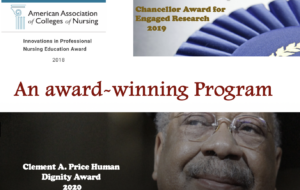
Program Creator and Director: Ana Laguna, Ph.D Coordinator: Eveling Hondros, MAT
Health professionals are daily confronted by the challenges of serving a population with whom they have difficulty communicating. Over 37 million people in the United States speak Spanish as their native language and more than 16 million have limited English proficiency.
At Rutgers–Camden, we offer a program in Medical Spanish that enhances the preparedness of our graduates who are entering the healthcare field, allowing them to meet the specific needs of these patients. This program serves both students who speak English as a native language and for those whom Spanish is their native or heritage language.
Admission Requirements
This certificate program is open to Rutgers students who are enrolled in a degree program.
Certificate Goals
Learning outcomes of this training in the Spanish for Health Professions Certificate Program
- Students will acquire language proficiency at the intermediate to advanced levels or beyond as defined by the American Council on the Teaching of Foreign Languages (ACTFL) and scored on the computerized Oral Proficiency Interview (OPIc).
- Students will be able to initiate and continue dialogue with Spanish speaking patients in a clinical setting by recording an accurate patient health history and responding to patient questions in the target language.
- Students will be able to communicate with Spanish speaking community members in health, social services and/or education settings through engaged civic learning courses.
- Students will complete a 40-hour Community Interpreter course and receive a nationally-recognized Certificate as a qualified Community Interpreter. [1]
- Students will understand the cultural idiosyncrasies that play a role in how Hispanic communities face health needs, initiatives, and/or crisis.
[1] Certificate is internal, open to all Rutgers University students.
Certificate Requirements
To earn the certificate, students must earn 18 credits
For more information, contact us using the form below:
